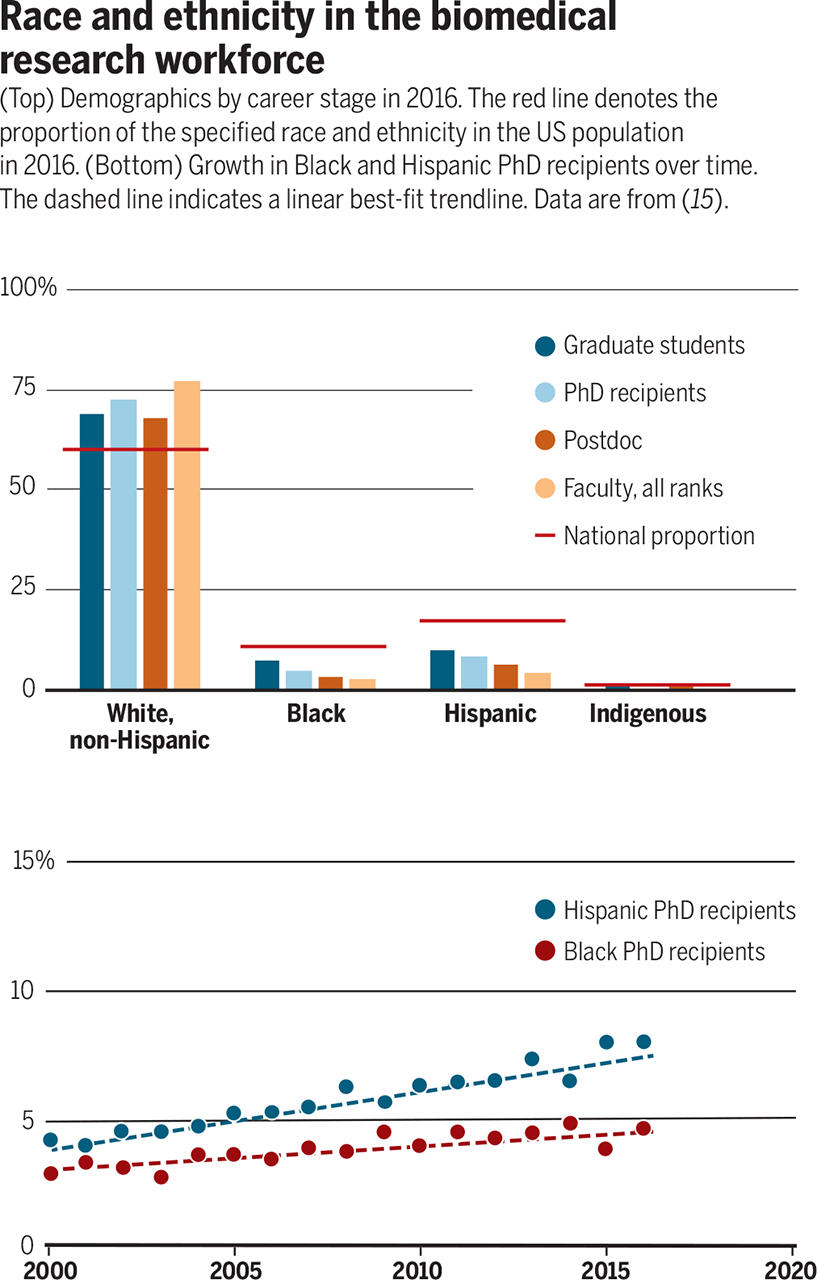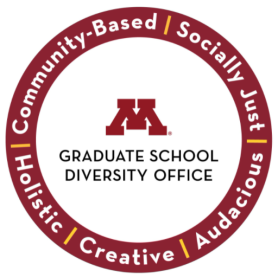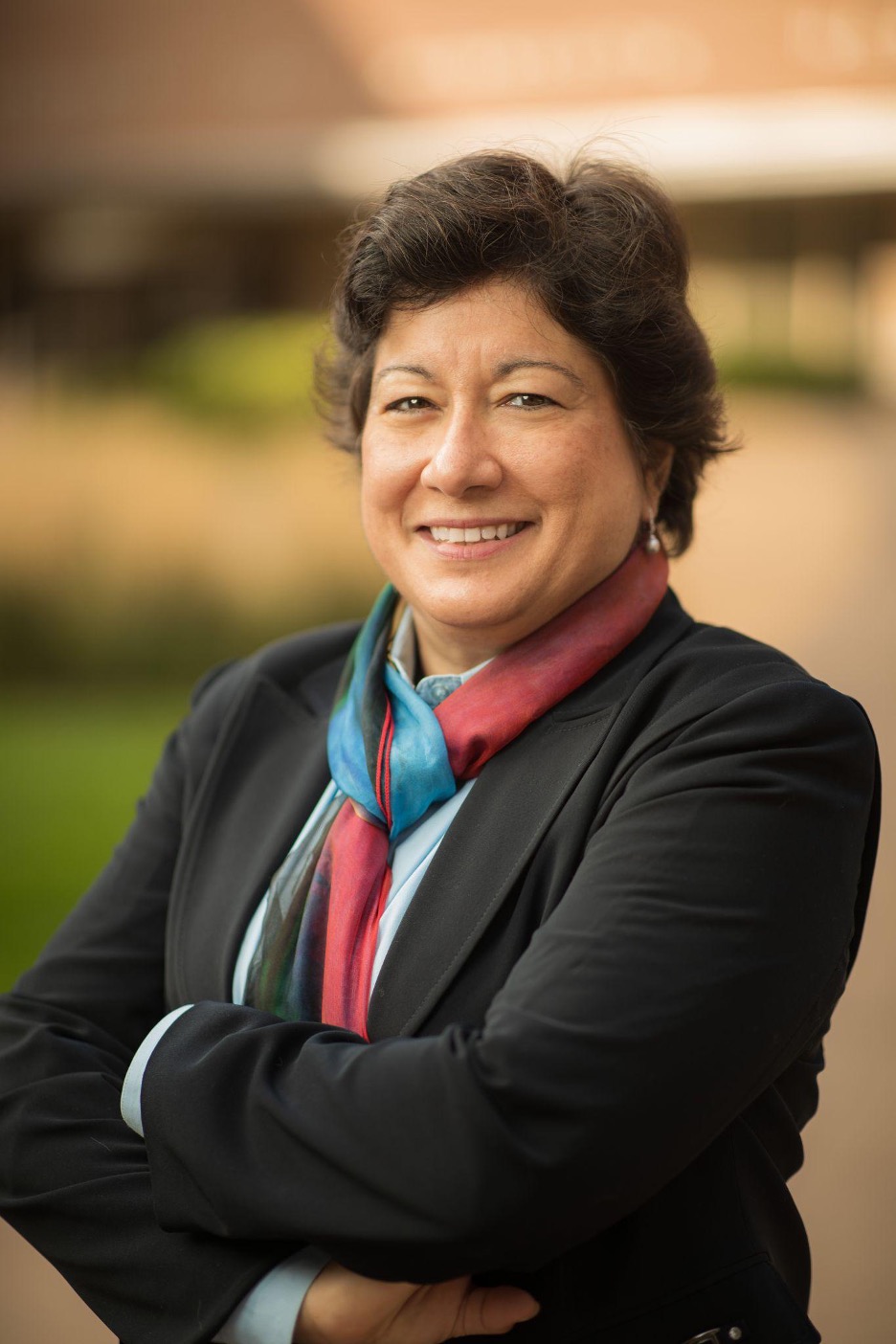Diversity and Inclusion

Diversifying the Workforce in the Biomedical Sciences
The University of Minnesota Medical School is dedicated to providing excellence across our mission - high-quality education and training for graduate students and postdoctoral scholars of all backgrounds; innovative and cutting-edge research and exceptional clinical outcomes that promote health equity. Through a variety of services and programs, we aim to engage everyone in our collective work toward inclusive excellence, promote equity in access to learning, scientific inquiry, care delivery, and celebrate our diversity through cultural experiences and opportunities on and off campus.
The Office of Graduate and Postdoctoral Studies, biomedical Sciences graduate programs and our Centers, Institutes and Programs (CIPs) are committed to increasing the impact, value and quality of faculty, graduate students, postdoctoral scholars and staff members by fostering a diverse, collaborative environment that promotes respect and civility, provides equal access to opportunities, and free from harassment, bullying, intimidation, and threatening behavior that interferes/impedes the ability to maximize success outcomes.
The contributions of scientists whose backgrounds encompass diversity including culture, disability, ethnicity, gender identity, sexual orientation, neurodiversity, and economic background are vital to our creative and productive research environment. Incorporating diversity in our community, curriculum, and research are essential for improving the health and knowledge of all.
The Office of Graduate and Postdoctoral Studies strives to increase the quality and diversity of trainees and provide a learning environment that supports inclusivity, equality and excellence. As such, we employ innovative and best practice approaches in recruitment and retention efforts to maximally contribute to diversifying the workforce in biomedical research enterprise.
The GPS Office engages in best practices to maximally support our graduate student and postdoctoral scholar training environments by embracing the NIH expanded definition of Diversity in the Biomedical Sciences, by including individuals that are: (1) of ethnicity/race traditional underrepresented in the biomedical sciences, (2) first-generation college students, Pell grant recipients and/or socioeconomic disadvantaged, (3) disabled and (4) women
Race and ethnicity in the biomedical research workforce
(Top) Demographics by career stage in 2016. The red line denotes the proportion of the specified race and ethnicity in the US population in 2016. (Bottom) Growth in Black and Hispanic PhD recipients over time. The dashed line indicates a linear best-fit trendline. Data are from (15).GRAPHIC: H. BISHOP/SCIENCE BASED ON S. TILGHMAN ET AL.
Shirley Tilghman et al. ,Concrete steps to diversify the scientific workforce.

Graduate School Diversity Office at the University of Minnesota
The Graduate School Diversity Office supports and enhances graduate education by serving in an advisory capacity, leading initiatives, and collaborating across the University of Minnesota. The work encompasses recruitment, funding, retention, advocacy, and education of students from underrepresented communities. Signature programs prioritize domestic graduate students who identify as Indigenous and/or People of Color, inclusive of their intersectional identities, as they have been historically excluded in graduate education.

The Office of Diversity Equity and Inclusion in the Medical School
Led by Vice Dean Ana Núñez, MD, FACP, the Office of Diversity, Equity and Inclusion (ODEI) team collaborates in the areas of diversity, equity, and inclusion (DEI) with faculty, staff, and learners across the Medical School, as well as partners from our communities to ensure we are celebrating diversity, encouraging conversations and addressing issues of inequities, bias and discrimination in our clinical programs, recruiting, curriculum, and research.
The Office of Graduate and Postdoctoral Studies works closely with the Office of Diversity, Equity and Inclusion to provide resources and support for our graduate student and postdoctoral trainees. Through this partnership, the two offices co-host workshops and seminars to directly address implicit bias, imposter syndrome, work-life balance, and gender equalities, among other pivotal topics of concern biomedical research enterprise. Additionally, our Offices work together to collect feedback on student wellness and perform climate surveys. Information gained from these activities allows the Medical School to provide additionally resources and support for our trainees and/or enact policy and operational changes.